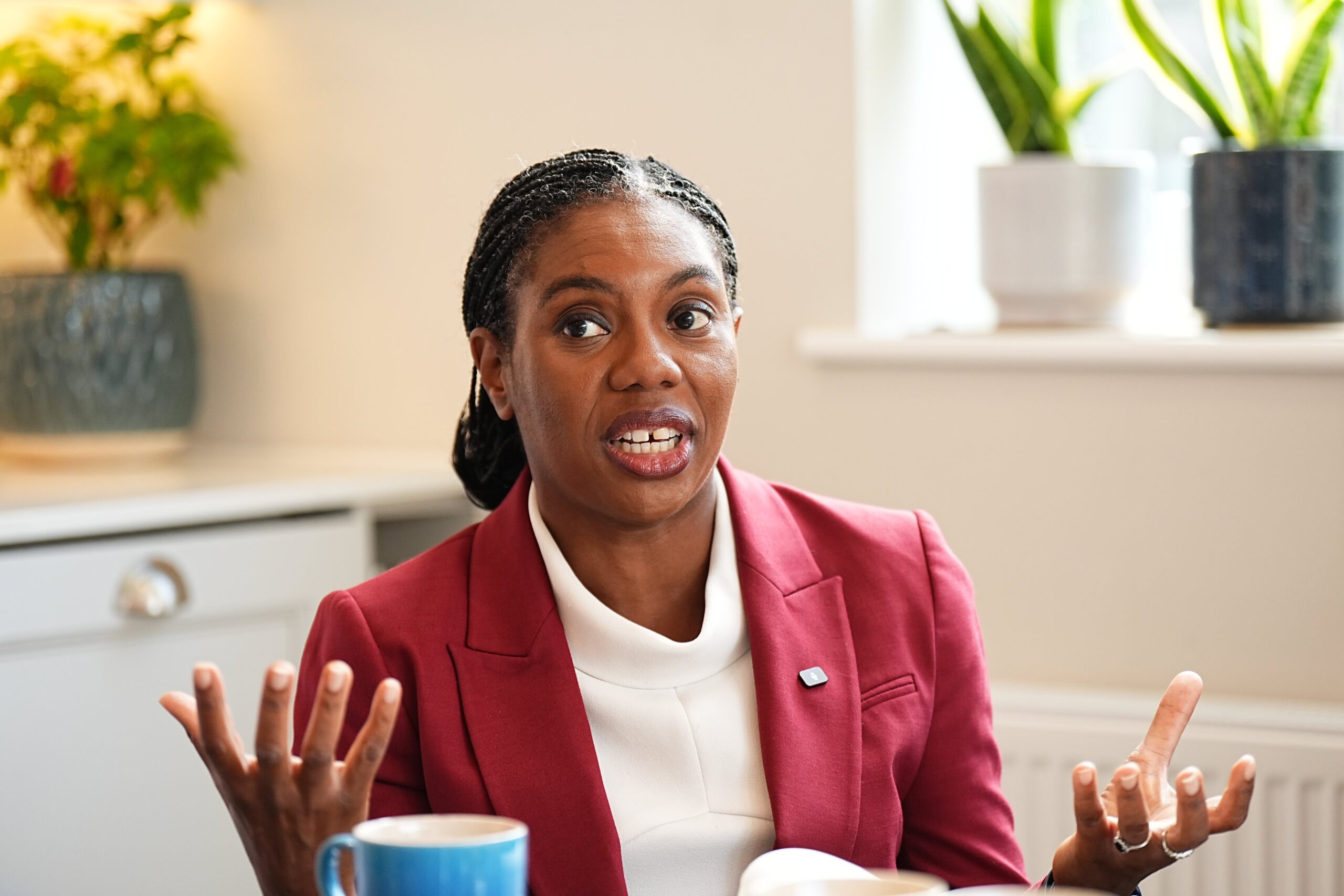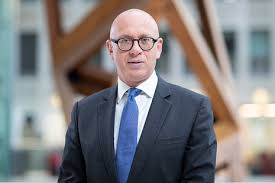Kemi Badenoch is expected to reveal that the Tories will support withdrawing from the European Convention on Human Rights (ECHR) after a review she commissioned recommended it.
The Independent has seen a copy of the draft conclusions to a review by former justice minister Lord Wolfson of Tredegar, which argues that the ECHR has gone “well beyond” the original intent of the convention in treating it as “a living document”.
The Tory peer argued the convention has put unacceptable “constraints” on governments and domestic courts, and made anticipating rulings “unpredictable”.

Ms Badenoch had asked him to review the legal situation regarding the ECHR earlier this year before deciding on whether it was party policy to leave it.
The announcement is expected to be made next week when the Tories hold their annual conference in Manchester, amid questions over whether they can survive as a major political party following the rise of Nigel Farage’s Reform.
With the Tories languishing in a distant third place with around half of the support enjoyed by Reform, Ms Badenoch is set to respond by aligning the Conservatives with Mr Farage on the ECHR, who has also called for the UK to abandon the convention.
The ECHR, which was set up in the aftermath of the Second World War and sets out the rights and freedoms people are entitled to in the 46 signatory countries, has come under fire recently as a result of its use to halt attempts to deport people who are believed to be in the UK illegally.
The push to leave the convention has arisen from the difficulty in tackling illegal migration, with challenges to deportations of those arriving on small boats and removing foreign criminals from the country.
Ms Badenoch may hope that confirming the position on the ECHR may see off attempts to replace her as leader. Robert Jenrick, who she defeated in last year’s leadership election, remains the favourite to replace her and has repeatedly called for the Conservatives to support ditching the convention.
But the basis of the decision will be made in the report drawn up for her by Lord Wolfson, who claims that the arguments used to say the UK should remain a signatory of the ECHR, including recently by attorney general Lord Hermer, are largely political, not legal ones.
In his conclusions, the shadow attorney general said: “It is hard to overstate the impact the ECHR has had on government decisions, across the range of policy areas canvassed in this advice.”
He set up four tests on the impact: sovereign borders, veterans, fairness and justice.
On borders, he noted that “the substantial ECHR limitations placed on government in the context of immigration and border control. This is the area where the most urgent and extensive changes are needed”.

Regarding the so-called veterans test, he noted “the particular difficulty in Northern Irish legacy cases where the Government spent considerable time and energy on the 2023 Act only to be told by the Northern Irish Court of Appeal that it did not comply with the ECHR (despite following a well-worn path of using immunities to further reconciliation)”.
Meanwhile, the fairness test “notes the more limited role that the ECHR plays in the allocation of social housing and benefits where the main concern is not to discriminate (although, as with all areas, governments have sought to align policies with the ECHR, meaning that an absence of friction at present is not itself determinative of the legal ’opportunity cost’ of the ECHR)”.
With the justice test, he notes that “the ECHR places excessive (and unpredictable) limits on the government’s ability to set strong deterrents for serious crime, and to police demonstrations (albeit some limits would probably be appropriate regardless of the ECHR)”.
Finally, with the prosperity test, he claims the ECHR is “holding back infrastructure projects”.
Historically, he argued that “the UK joined the ECHR ‘only reluctantly and suspiciously’, and ‘probably signed the Convention only because they expected never to be challengeable under it’”.
But he then claimed that “the jurisprudence has developed unpredictably because the courts regards the ECHR as a ‘living instrument’ such that its decisions, and in consequence those of domestic courts, are not constrained by the wording of the ECHR itself”.
Lord Wolfson disputes that human rights would be harmed by the abandonment of the ECHR.
He said: “It is worth remembering that countries that inherited the British model of rights protection have continued to improve their approach to rights protection and official accountability, but done so without binding themselves to international courts.”
Labour attorney general Lord Hermer recently warned that leaving the convention would put the UK in the same position as Russia and Belarus.
“There are a number of reasons for that but at the heart of it is it would be completely contrary to the national interest were we to [leave the convention],” Lord Hermer told a parliamentary committee earlier this month.
A spokesperson for the Conservatives said the Wolfson report is “not finished”.
In a statement, Lord Wolfson said: “The Lawfare Commission report is a lengthy document and, like all such documents, has been worked on in draft throughout. It remains in draft. The advice has neither been finalised nor signed by me, and it therefore has not been delivered to the leader of the opposition and shadow cabinet. I anticipate doing so next week, for a decision to be made at party conference, as set out by the leader of the opposition in June.”
